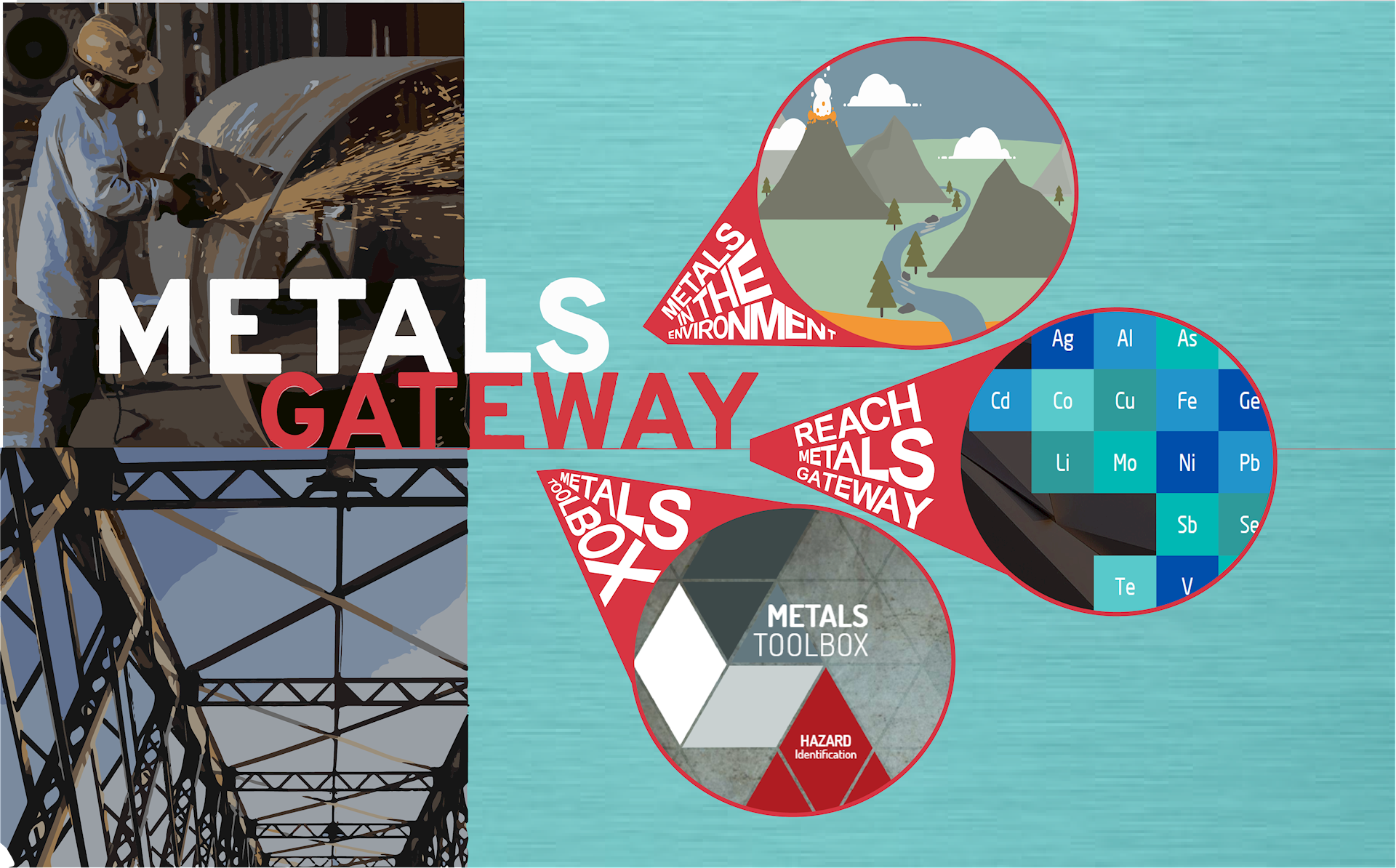The zips of your coats, handbags or wallets or the jewelry that you are wearing. Metals are indispensable in the modern world and embedded in numerous products to ensure that they provide long-lasting service and - by extension – long-lasting pleasure to society.
The Metals Gateway - the 'one stop shop' for anything you ever wanted to know about metals

Everyone is confronted with metals on a daily basis. Just look around you in the kitchen where appliances and cutlery are often made out of nickel-containing stainless steel. Your car or bicycle, whether electrical or not, won’t exist if it weren’t for all the metals that build the frame or the battery to make it faster, cleaner, safer.
Metals need to be managed too
In regulation, metals are part of the chemicals world that needs to be managed to ensure that society can continue to enjoy all the benefits that they bring without worry. Regulators and authorities assess chemicals in order to understand how to best manage them, and they look at whether they can cause any toxic effects (also called hazard identification). If so, they assess who could potentially be exposed to the chemical, what is their level of exposure, is there any risk related to the exposure and how can this risk be best managed? Maybe there is no risk at all and no need for regulatory action, or maybe the risk is such that it’s best to ban the chemical for future uses? Or perhaps the risk is for workers only and therefore workplace regulation kicks in. To be able to answer these questions proper risk assessment tools that take into account both hazard and risk are needed. And this is what makes metals so interesting (at least for scientists, regulators and industry), but also challenging!
Metals are different

Why?
Because metals are very different from organic chemicals. For instance, many are essential and should be present in our bodies if we want to live healthily. Anaemia is a case in point. This could be caused by a lack of iron in the blood and can be a serious condition. Does that mean that we should have as much iron as possible in our body to avoid it? No! Because too much iron leads to hemochromatosis, which could lead to liver failure! We just need the right dose, not too much, not too little.
How about the environment? Where do we get metals from?
From the earth! They are naturally occurring elements and as such, are present in nature. Some regions are more endowed with metals than others, depending on their geological situation. For instance, a beautiful flower grows in the Alps, called the zinc violet. Why does it flourish there? Because zinc is naturally present in the soil in high quantities and the zinc violet knows this and likes it. It’s right in its element, zinc in this case!
These are just a few examples of how metals are different from other chemicals. And this could lead to challenges as the traditional assessment tools which were developed for organic chemicals, are not always applicable to metals. It is important that metals are regulated based on correct assumptions or data, because it’s in the interest of all, regulators, industry and society, that we can continue to safely benefit from all the products that we have. And safely means that regulation for metals is based on appropriate scientific tools and assessments.
Safely use means that regulation for metals is based on appropriate scientific tools and assessments.
Easy access to metals information
The metals sector has been grappling with this challenge for many years and recognises that regulators have a difficult task in accessing the information that they need when dealing with metals. This is why Eurometaux (the European non-ferrous metals federation) and several metals associations have launched the Metals Gateway (https://metals-gateway.com/). The Metals Gateway is an online portal that gives regulators and downstream users of metals and metal compounds easy access to the information they need to ensure that these substances can be used safely and in a manner that is protective of the environment and health.
The Metals Gateway package includes:
-
Metals in the Environment – factsheets on what makes metals different, how they interact with other substances and biological organisms under different conditions, water quality, pH etc.
-
REACH Metals Gateway – Guidance for the EU and International Metals Industry in the implementation process of the EU REACH and CLP Regulations. The REACH Metals Gateway allows quick and structured access to relevant information from authorities and from the metals industry.
-
The Metals Toolbox - Tools and guidelines to enable regulators and stakeholders to accommodate metal-specificities in hazard identification and risk assessments.

Practical toolbox
The Metals Toolbox is the latest metals website. In the past, tools and guidelines have been developed to enable regulators and stakeholders to deal with metal-specific aspects in hazard identification and risk assessments. Some of these have been incorporated into guidelines and regulations at local, regional, and international levels (e.g. US state level, EU, OECD). However, they were distributed via different channels. Many regulators and stakeholders were not aware of their existence and it was not so easy to understand where they fit in the overall assessment of metals.
Now they are compiled in one single Metals Toolbox. The objective is on the one hand, to explain in general terms what makes metals so different from organic compounds and, on the other hand, to provide free and easy access to all the tools on one single website.
The Nickel Institute is proud to have been part of this important initiative and we hope that anybody involved with metals will enjoy a peep at the Gateway because … (as they say in France), c’est nickel!

